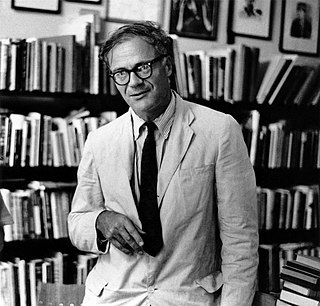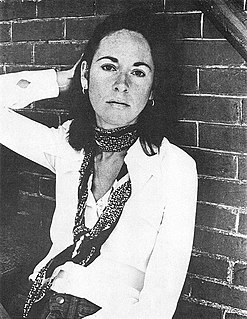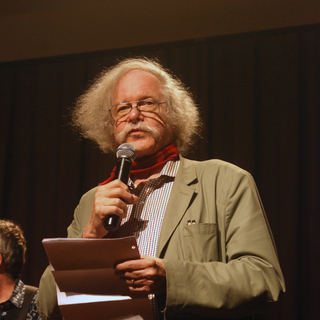
Imagism was a movement in early-20th-century Anglo-American poetry that favored precision of imagery and clear, sharp language. It is considered to be the first organized modernist literary movement in the English language. Imagism is sometimes viewed as "a succession of creative moments" rather than a continuous or sustained period of development. The French academic René Taupin remarked that "it is more accurate to consider Imagism not as a doctrine, nor even as a poetic school, but as the association of a few poets who were for a certain time in agreement on a small number of important principles".

Amy Lawrence Lowell was an American poet of the imagist school, which promoted a return to classical values. She posthumously won the Pulitzer Prize for Poetry in 1926.

Robert Traill Spence Lowell IV was an American poet. He was born into a Boston Brahmin family that could trace its origins back to the Mayflower. His family, past and present, were important subjects in his poetry. Growing up in Boston also informed his poems, which were frequently set in Boston and the New England region. The literary scholar Paula Hayes believes that Lowell mythologized New England, particularly in his early work.
Confessional poetry or "Confessionalism" is a style of poetry that emerged in the United States during the late 1950s and early 1960s. It is sometimes classified as a form of Postmodernism. It has been described as poetry of the personal or "I", focusing on extreme moments of individual experience, the psyche, and personal trauma, including previously and occasionally still taboo matters such as mental illness, sexuality, and suicide, often set in relation to broader social themes.

Louise Elisabeth Glück is an American poet and essayist. She won the 2020 Nobel Prize in Literature, whose judges praised "her unmistakable poetic voice that with austere beauty makes individual existence universal". Her other awards include the Pulitzer Prize, National Humanities Medal, National Book Award, National Book Critics Circle Award, and Bollingen Prize. From 2003 to 2004, she was Poet Laureate of the United States.

Edward Sanders is an American poet, singer, activist, author, publisher and longtime member of the rock band the Fugs. He has been called a bridge between the Beat and hippie generations. Sanders is considered to have been active and "present at the counterculture's creation."

Nick Flynn is an American writer, playwright, and poet. His writing is characterized by lyric, distilled moments, which blur the boundaries of various genres. Many of his books are structured using a collage technique, which creates narratives with fractured, mosaic qualities. His work can be classified as récit—a French term for writing that is not the narration of an event, but an event itself. Several of his books are what he refers to as "siblings" to each other, in that they examine similar material from various perspectives.
Richard Tillinghast is a poet and author.

Lia Purpura is an American poet, writer and educator. She is the author of four collections of poems, four collections of essays and one collection of translations. Her poems and essays appear in AGNI, The Antioch Review, DoubleTake, FIELD, The Georgia Review, The Iowa Review, Orion Magazine, The New Republic, The New Yorker, The Paris Review, Parnassus: Poetry in Review, Ploughshares. Southern Review, and many other magazines.
Michael Hofmann is a German-born poet who writes in English and is a translator of texts from German.
Nationality words link to articles with information on the nation's poetry or literature.
Tom Sexton is an Alaskan poet and scholar who became the state's Poet Laureate in 1995

David Kirby is an American poet and the Robert O. Lawton Distinguished Professor of English at Florida State University (FSU).
William "Bill" Daniel Ehrhart is an American poet, writer, scholar and Vietnam veteran. Ehrhart has been called "the dean of Vietnam war poetry." Donald Anderson, editor of War, Literature & the Arts, said Ehrhart's Vietnam–Perkasie: A Combat Marine Memoir, is "the best single, unadorned, gut-felt telling of one American's route into and out of America's longest war." Ehrhart has been an active member of Vietnam Veterans Against the War (VVAW). He was a 1993 Pew Fellow in the Arts.
Richard Foerster is an American poet and the author of eight collections.
George Merrill Witte is an American poet and book editor from Madison, New Jersey. Witte is the current editor-in-chief of St. Martin's Press. He is the author of Does She Have a Name?, Deniability: Poems and The Apparitioners: Poems.
Jeffrey W. Harrison is an American poet. Born in Cincinnati, he was educated at Columbia University, where he studied with Kenneth Koch and David Shapiro. His most recent poetry collection is Into Daylight, which follows The Names of Things: New & Selected Poems. His poems have appeared in literary journals and magazines, including The New Republic, The New Yorker, The Paris Review, Poetry, The Yale Review, Poets of the New Century. His honors include Pushcart Prizes, Guggenheim, National Endowment for the Arts, and Amy Lowell Traveling fellowships. He has taught at George Washington University, Phillips Academy, and College of the Holy Cross. He is currently on the faculty of the Stonecoast MFA Program at the University of Southern Maine. He lives in Dover, Massachusetts.
Stephen Yenser is an American poet and literary critic who has published three acclaimed volumes of verse, as well as books on James Merrill, Robert Lowell, and an assortment of contemporary poets. With J.D. McClatchy, he is co-literary executor of the James Merrill estate and co-editor of six volumes of Merrill's work.
Peter Klappert is an American poet.

Paola Corso is an American fiction writer, poet, photographer and literary activist. Corso is a New York Foundation for the Arts Poetry Fellow, Sherwood Anderson Fiction Award Winner,, and included on the Pennsylvania Center for the Book's Literary Map. She is the author of eight books of fiction and poetry, including 'Vertical Bridges: Poems and Photographs of City Steps,' (2020) with original photos by the author and archival photographs from the University of Pittsburgh Library; Catina's Haircut: A Novel in Stories (2010) on Library Journal’s notable list of first novels; Giovanna's 86 Circles And Other Stories (2005), a Binghamton University's John Gardner Fiction Book Award Finalist; a book of poems, Death by Renaissance (2004), and award-winning poetry collections, The Laundress Catches Her Breath, winner of the Tillie Olsen Award for Creative Writing; and Once I Was Told the Air Was Not for Breathing (2012), about Pittsburgh steelworkers and garment workers in the Triangle Shirtwaist Factory fire and winner of a Triangle Fire Memorial Association Award.








